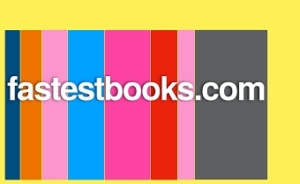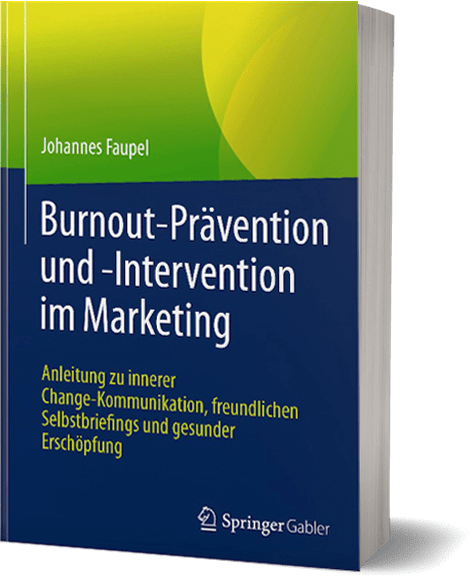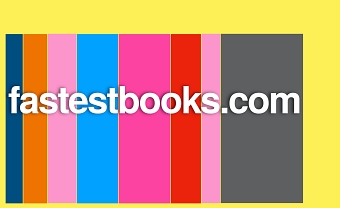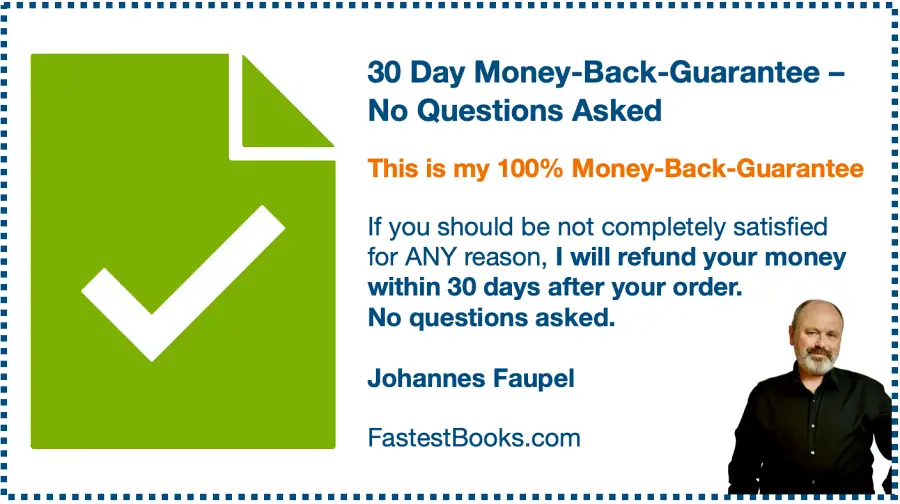What Are the Best Self-Help Books – what they are about, what they are good for?
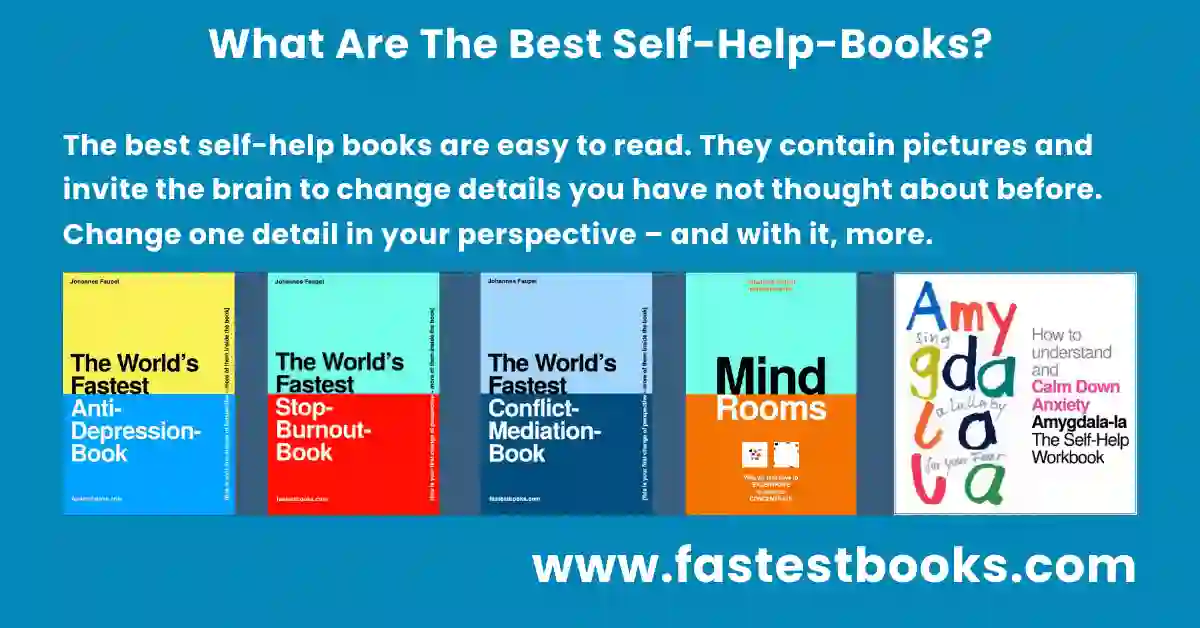
Self-help books are a sort of professional or semi-professional psychological literature which is intended to make people able of helping themselves.
Who uses self-help books?
In short, everybody can use a self-help book to help himself. There is probably no certain type of human being that buys self-help literature – and no typical non-buyer.
The topical range in the self-help industry is wide.
So it’s likely that everyone can find a self-help book on something that concerns him.
Self-help books are designed to help people work through their problems on their own
Many people find them helpful because they can provide guidance and support without the need for expensive therapy or medication.
They can also be used as a supplement to therapy, providing additional tools and resources.
There are many types of self-help books available, so it is important to choose one that is right for your specific needs. Some focus on general issues such as anxiety or depression, while others are geared towards more specific topics such as relationships, career, or personal growth.
It is also important to consider the author’s credentials when selecting a book; look for someone who is a qualified expert in the field.
What is the purpose of self-help books?
There are two types of purpose of self-help books.
- Author’s interests. Psychologists may write self-help guides that convince the audience to join the writer later on as a therapist. For the self-marketing of a counselor, writing a book on self-help is a proper marketing instrument.
- Reader’s interests: A person buys a self-help book on behalf of solving a problem or becoming better in daily routines.
Can a self-help book heal a person?
The simple answer is no. A self-help book cannot heal a person. The reason being is that healing is an internal process that can only be started and completed by the individual. No outside source, be it a psychologist or a book, can do the work for the person.
What a self-help book can do, however, is provide guidance and support throughout the healing process.
- It can act as a sounding board to help the individual gain clarity on their thoughts and feelings.
- It can also offer tools and techniques to assist in managing difficult emotions and situations.
- Ultimately, it is up to the person to do the work required to heal themselves, but a self-help book can be a helpful resource along the way.
What means best?
Best in terms of self-help-books means: addressing a certain issue or situation.
Here are some examples when an e-book might appear as the best interim-solution:
Long waiting list for psychotherapy
One can’t afford psychotherapy
No appointment at a psychiatrist right now – example from NYC
These and similar situations can be the best moments and motivations for reading a self-help book.
Questions |
Answers |
|---|---|
| For whom is this web-article helpful? | The web-article is helpful for anyone looking to understand self-help books and their benefits. It states that “everybody can use a self-help book to help himself.” |
| What main problems does one have before reading it? | The article doesn’t explicitly mention the problems one might have before reading it. However, it can be inferred that individuals might be seeking guidance, support, or understanding about self-help books and their relevance. |
| What can people learn here? | People can learn about the purpose and benefits of self-help books, their main topics, and how they can be used to address various issues such as depression, relationships, and personal change. |
| What other pages on this website (domain) are worth reading in this context? | The following pages might be worth reading in this context: |
What Are the Best Self-Help Books?
First we have to ask: What means best self-help books? What are the reader’s expectations? And what means best self-help books for which user?
Best Self-Help Books in the Context of Reader’s Expectation
What are the expectations from a self-help book?
Readers generally expect actionable advice, practical strategies, and real-life examples from self-help books.
How do reader goals influence the choice of the best self-help books?
Goals such as personal growth, career development, mental health improvement, or relationship enhancement determine the most suitable self-help book for a reader.
What are the common themes readers look for in self-help books?
Common themes include motivation, productivity, emotional well-being, financial advice, and personal relationships.
Credibility of the author is crucial; readers often look for books written by experts or those with proven success stories.
Best Self-Help Books in the Context of Psychological Diagnosis / Issue
What are the best self-help books for anxiety?
Books like “The Anxiety and Phobia Workbook” by Edmund J. Bourne and “Feeling Good” by David D. Burns are highly recommended.
What self-help books are recommended for depression?
Titles such as “The Depression Cure” by Stephen S. Ilardi and “The Noonday Demon” by Andrew Solomon are widely regarded as effective.
What books are best for improving self-esteem?
“The Six Pillars of Self-Esteem” by Nathaniel Branden and “The Gifts of Imperfection” by Brené Brown are popular choices.
Which self-help books are suitable for managing stress?
“The Relaxation and Stress Reduction Workbook” by Martha Davis and “Stress Less, Accomplish More” by Emily Fletcher are highly recommended.
What are the best books for anger management?
“The Anger Control Workbook” by Matthew McKay and “Anger: Wisdom for Cooling the Flames” by Thich Nhat Hanh are effective choices.
Best Self-Help Books in Terms of Time to Read
What are some quick reads in self-help?
“Who Moved My Cheese?” by Spencer Johnson and “The Four Agreements” by Don Miguel Ruiz are short yet impactful.
What self-help books can be read in a weekend?
“The Subtle Art of Not Giving a F*ck” by Mark Manson and “Atomic Habits” by James Clear are suitable for a weekend read.
What are some self-help books that require more in-depth reading?
“The Power of Now” by Eckhart Tolle and “Man’s Search for Meaning” by Viktor E. Frankl require more time and reflection.
How can busy professionals benefit from self-help books?
Books like “Getting Things Done” by David Allen and “Essentialism” by Greg McKeown offer practical advice for busy schedules.
Best Self-Help Books in the Context of How Quick to Implement
Which self-help books offer immediate actionable steps?
“7 Habits of Highly Effective People” by Stephen R. Covey and “Eat That Frog!” by Brian Tracy provide actionable steps.
What books provide step-by-step guides for personal development?
“The Miracle Morning” by Hal Elrod and “Mindset” by Carol S. Dweck offer structured approaches for self-improvement.
Which self-help books are known for practical exercises?
“The Artist’s Way” by Julia Cameron and “You Are a Badass” by Jen Sincero include practical exercises for daily implementation.
What are the best books for quick habit formation?
“Atomic Habits” by James Clear and “Tiny Habits” by BJ Fogg are excellent for quickly forming new habits.
Best Self-Help Books in the Context of Reader’s So Far Disappointments by Other Methods of Self-Help
What self-help books are recommended for those skeptical of self-help?
“The Subtle Art of Not Giving a F*ck” by Mark Manson and “You Are Here” by Thich Nhat Hanh provide a refreshing take on self-help.
What books address the limitations of self-help?
“Everything Is F*cked: A Book About Hope” by Mark Manson and “Self-Help That Works” by John C. Norcross critically analyze self-help methods.
Which self-help books offer scientific approaches?
“The Happiness Advantage” by Shawn Achor and “Stumbling on Happiness” by Daniel Gilbert are based on scientific research.
What books provide practical, no-nonsense advice?
“How to Win Friends and Influence People” by Dale Carnegie and “The Life-Changing Magic of Tidying Up” by Marie Kondo offer straightforward advice.
Best Self-Help Books in the Context of Gifting a Self-Help Book to a Person Who Might Need It
What self-help books are great gifts for someone experiencing stress?
“Stress Less, Accomplish More” by Emily Fletcher and “Wherever You Go, There You Are” by Jon Kabat-Zinn are thoughtful gifts.
What are good self-help books to gift for career development?
“Lean In” by Sheryl Sandberg and “The 7 Habits of Highly Effective People” by Stephen R. Covey are ideal for career-focused individuals.
Which self-help books are suitable for someone struggling with anxiety?
“The Anxiety and Phobia Workbook” by Edmund J. Bourne and “Dare: The New Way to End Anxiety” by Barry McDonagh are helpful choices.
What are the best self-help books for someone seeking happiness?
“The Happiness Project” by Gretchen Rubin and “The Art of Happiness” by Dalai Lama and Howard Cutler are uplifting gifts.
What self-help books make good gifts for improving relationships?
“The 5 Love Languages” by Gary Chapman and “Men Are from Mars, Women Are from Venus” by John Gray offer valuable relationship advice.
Go to the fastestbooks.com self-help books directory.
